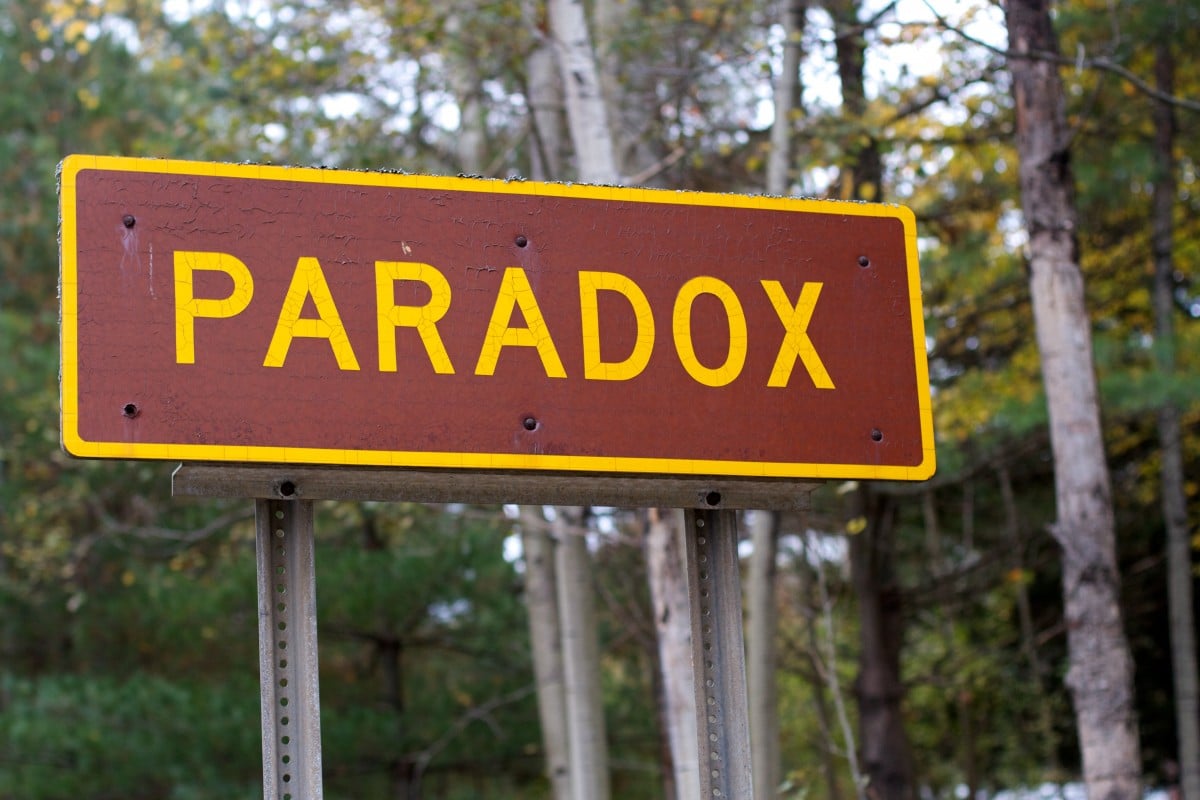Pride is strange. We rarely see its real shape because it’s usually cloaked in comparison— one of pride’s favorite disguises. Beneath the surface of so many self-assured statements, opinions, and ambitions is a quiet, often unacknowledged dependence: we regard ourselves as superior to the very people whose recognition we crave in order to feel superior.
That’s the paradox.

This isn’t merely a psychological tic. It’s a theological and relational distortion that keeps us orbiting around ourselves while tethered to others in all the wrong ways. Our pride says, “I don’t need you,” while secretly whispering, “Please notice me.” It projects independence while feeding on approval. And this is what makes it so hard to root out. Why? Pride thrives not just on self-exaltation but on our dependence on others to keep believing in our self-exaltation, too.
The Performance Trap
This paradox shows up subtly in the way we posture ourselves, especially in religious or moral settings. It’s easy to think we’re standing on solid ground because we obey the rules, make the right sacrifices, or hold the “biblical” view on this or that. But we often forget that the sense of moral superiority we feel depends on having others to look down upon.
In one sense, we only feel righteous by contrast. It’s not enough to be “right”— we need others to be wrong. We need an audience to witness our virtue. Even our humility can be performative: a tool to secure a reputation for not caring about reputation.
Consider the Pharisee in Jesus’ parable who prays, “God, I thank you that I am not like other men” (Luke 18:11). His prayer is aimed at God, but his self-identity is built entirely in contrast to the tax collector beside him. His moral high ground is not secure in itself; it’s propped up by the presence of someone “worse.” Without the tax collector, his prayer collapses. He is, quite literally, praying his self into existence.
Pride Distorts Community
Pride wants to be above others but can’t be sustained alone. It’s a social phenomenon. It needs an ecosystem. It needs someone to be less successful, less holy, less competent, less intelligent. The danger is that it mimics community while actually corroding it. It requires people but only as a backdrop. It calls people “friends” but secretly needs them to stay beneath us in order for us to feel okay.
In this way, pride isolates even while it demands constant company. It both shuns and consumes. And it has a particularly insidious way of showing up in places that prize humility—because there, pride gains credibility. It becomes harder to name, and even harder to confess, because it hides behind noble behavior.
This is not new. Milton’s Satan is perhaps the most dramatic literary portrait of this paradox. He declares, “Better to reign in Hell than serve in Heaven,” exalting himself while needing a kingdom, an audience—even in rebellion. His defiance is proud but never independent. He is not content to fall alone; he must persuade others, gather a following, and establish a new order. His pride feeds on hierarchy, even in hell.
Or consider Jane Austen’s Mr. Darcy from Pride and Prejudice. His pride is not just a personal character flaw; it’s structured around social rank. Early in the novel, he looks down on Elizabeth Bennet and her family with open disdain. Yet, such disdain is only meaningful because people like the Bennets exist. His status depends on them being “beneath” him. Without them, the ladder he stands on disappears.
Darcy’s pride isn’t about self-sufficiency. It’s about sustaining a particular social narrative. His transformation—learning to truly love—is possible only as he begins to regard Elizabeth not as a rung on a ladder but as a person worth his affection regardless of her social standing.
Theological Malfunction
What’s behind all of this? Pride reveals a deep theological malfunction. It exposes a fundamental confusion about where our value comes from. If our worth is something we must construct and defend, then we will constantly seek validation from those around us, even as we tell ourselves we are above them.
This is what Scripture calls “living according to the flesh.” It’s the self turned in on itself, trying to secure what God has already given. We forget that glory is something received, not achieved. In doing so, we measure ourselves by others—who they are, how they fail, how we can stand out from them. But true humility begins where we abandon that measurement entirely.
Christian obedience—true gospel-driven obedience—is not about proving anything. It’s about depending on grace. We are most secure when we stop curating our image and instead receive our identity as children of God, heirs by adoption. The gospel frees us from the exhausting task of being impressive.
This doesn’t mean we stop striving. It means we strive differently—not to exalt ourselves above others but to love others more freely. As Paul says, “Do nothing from selfish ambition or conceit, but in humility count others more significant than yourselves” (Phil. 2:3). The irony is that when we stop trying to be above others, we are actually lifted up. “Humble yourselves before the Lord, and He will exalt you” (James 4:10).
Rebuilding Worth on Grace
The paradox of pride is that it places us on a pedestal built by others, all while pretending we got there on our own. However, grace removes the pedestal entirely. It says your value doesn’t need to be proved. It is secure in Christ.
We no longer have to look over our shoulder to make sure someone’s behind us on the spiritual or social ladder. There’s no need for them to fail so we can feel righteous. We don’t need them to be less than us so we can feel more.
When we live in light of that truth, we can finally stop pretending and start participating—really participating—in community. Not as performers or curators of image, but instead as people secure in a love that doesn’t depend on comparison.
Pride thrives on needing others to think you don’t need them.
Grace begins when you stop needing anyone to think anything about you at all.













